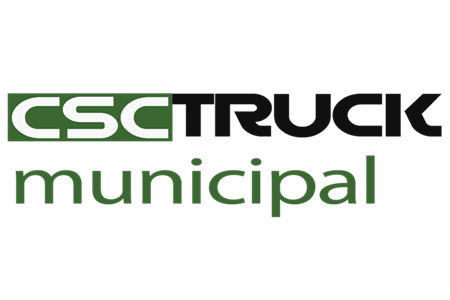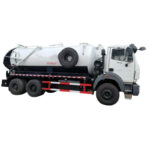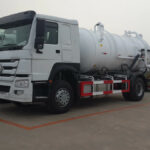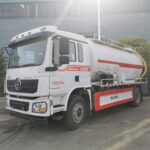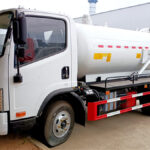Industrial cleaning processes have evolved significantly over the years, with water jetting trucks emerging as a powerhouse for efficient and thorough cleaning in various sectors. These trucks, equipped with high-pressure water systems, are used for tasks ranging from removing debris and sludge to cleaning surfaces and preparing them for maintenance or coatings. However, like any other machinery, water jetting trucks require meticulous maintenance to ensure optimal performance and longevity. In this article, we delve into the essential steps for effective water jetting truck maintenance, emphasizing the importance of a well-maintained fleet for successful operations.
Understanding the Basics of Water Jetting Trucks:
Water jetting trucks, also known as hydroblasting trucks, utilize high-pressure water streams to clean surfaces and materials. The sheer force of the water ejected from the nozzle can remove tough deposits, coatings, and contaminants, making these trucks indispensable in industries such as construction, oil and gas, municipal cleaning, and manufacturing. To keep these powerful machines operating at their best, a comprehensive maintenance regimen is imperative.
Regular Inspection:
One of the fundamental steps in water jetting truck maintenance is conducting routine inspections. These inspections should cover the entire truck, including the water reservoir, high-pressure pump, hoses, nozzles, and control systems. By identifying wear and tear early on, you can prevent small issues from escalating into major problems that could result in costly repairs and downtime.
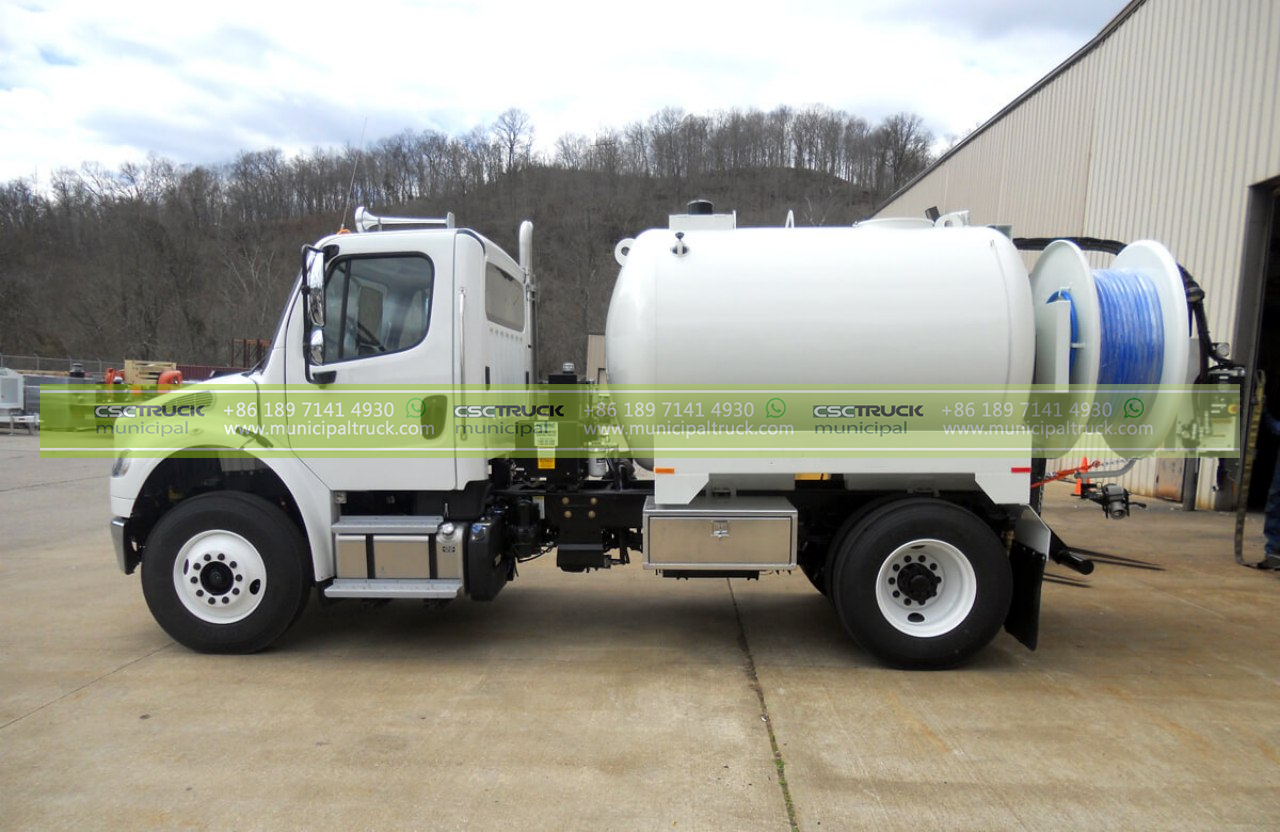
Fluid Management:
The water used in these trucks often contains various chemicals or additives to enhance cleaning efficiency. Proper fluid management is crucial to prevent the buildup of sediments, corrosion, and other issues within the water reservoir and pumping system. Regularly draining and cleaning the reservoir, as well as using appropriate filters, can go a long way in maintaining the quality of the water and extending the life of the truck’s components.
High-Pressure Pump Maintenance:
The heart of any water jetting truck is its high-pressure pump. Regular maintenance of this component is essential for consistent performance. Lubrication of moving parts, checking for leaks, and ensuring proper pressure levels are all part of routine pump maintenance. If the pump is not functioning optimally, it can result in decreased cleaning efficiency and increased fuel consumption.
Nozzle Care:
Nozzles are critical to the effectiveness of water jetting trucks. They determine the shape and intensity of the water stream, impacting the cleaning power. Nozzles can wear out over time due to the high-pressure water passing through them. Regularly inspecting and replacing worn-out nozzles can help maintain the quality of the water stream and avoid uneven cleaning patterns.
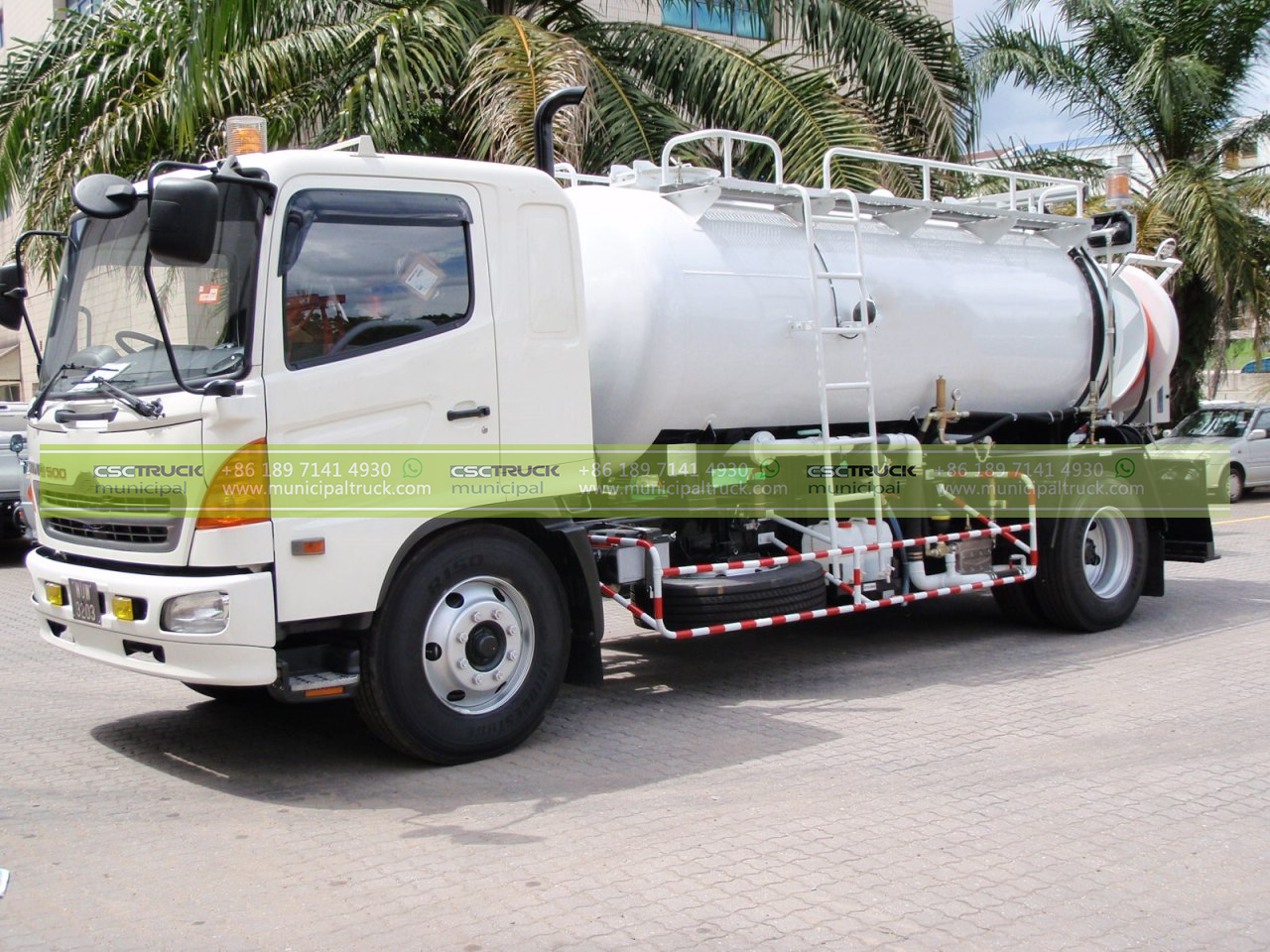
Hose Inspection:
Hoses that transport high-pressure water from the pump to the nozzle are subjected to immense stress. They need to be inspected for signs of wear, such as cracks, bulges, or leaks. Damaged hoses not only compromise cleaning efficiency but also pose safety risks to operators. Replacing hoses at the first sign of deterioration is a simple yet effective maintenance practice.
Electrical and Control Systems:
Modern water jetting trucks often come with advanced control systems that allow operators to adjust pressure, water flow, and other parameters. Regularly checking these systems ensures that the truck can be safely and precisely operated. Moreover, addressing any electrical issues promptly can prevent operational disruptions and potential hazards.
Operator Training:
While not a maintenance task in the traditional sense, providing proper training to truck operators is essential. Competent operators are more likely to use the equipment correctly, apply appropriate cleaning techniques, and notice any anomalies during operation. Operator knowledge contributes significantly to the longevity of the water jetting truck.
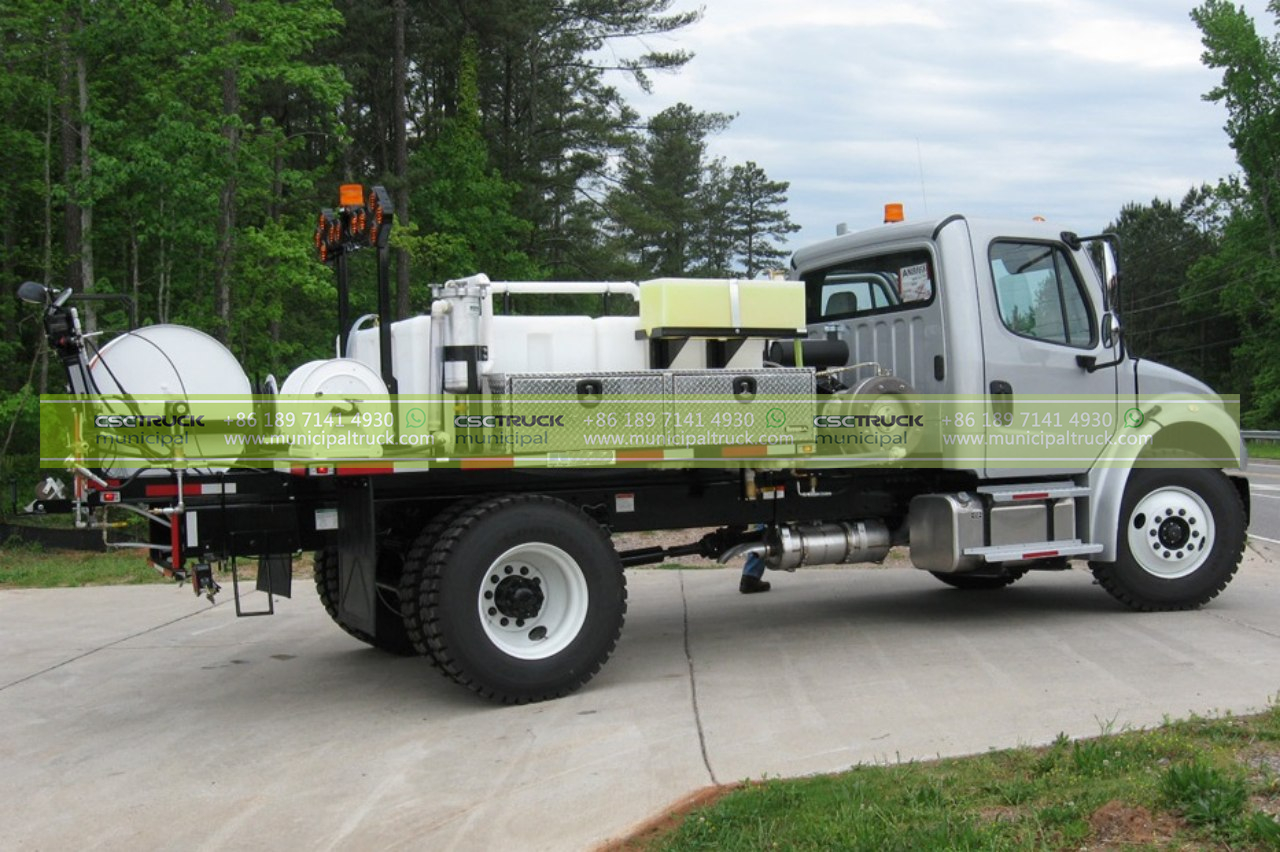
Documentation and Record-Keeping:
Maintaining detailed records of maintenance activities, repairs, and inspections can provide valuable insights into the overall health of the water jetting truck fleet. Over time, patterns may emerge that help in optimizing maintenance schedules and identifying components that require more frequent attention. This data-driven approach enhances the efficiency of maintenance efforts.
Benefits of Effective Water Jetting Truck Maintenance:
Prioritizing water jetting truck maintenance offers a range of benefits that directly impact operational efficiency and cost-effectiveness. By investing time and resources in maintenance, companies can:
1. Maximize Performance: Regular maintenance ensures that the truck operates at its peak performance, delivering consistent and effective cleaning results.
2. Minimize Downtime: Unplanned downtime due to equipment failure can disrupt operations and lead to financial losses. Preventive maintenance reduces the likelihood of unexpected breakdowns.
3. Extend Lifespan: Well-maintained trucks have a longer operational lifespan, saving companies from the expense of frequent replacements.
4. Enhance Safety: A properly maintained truck is safer to operate, reducing the risk of accidents caused by malfunctioning components.
5. Optimize Costs: While maintenance incurs a cost, it is significantly lower than the expenses associated with major repairs or replacements. Regular upkeep also leads to better fuel efficiency.
6. Sustain Reputation: Consistently delivering high-quality cleaning services enhances a company’s reputation and can lead to increased customer trust and loyalty.
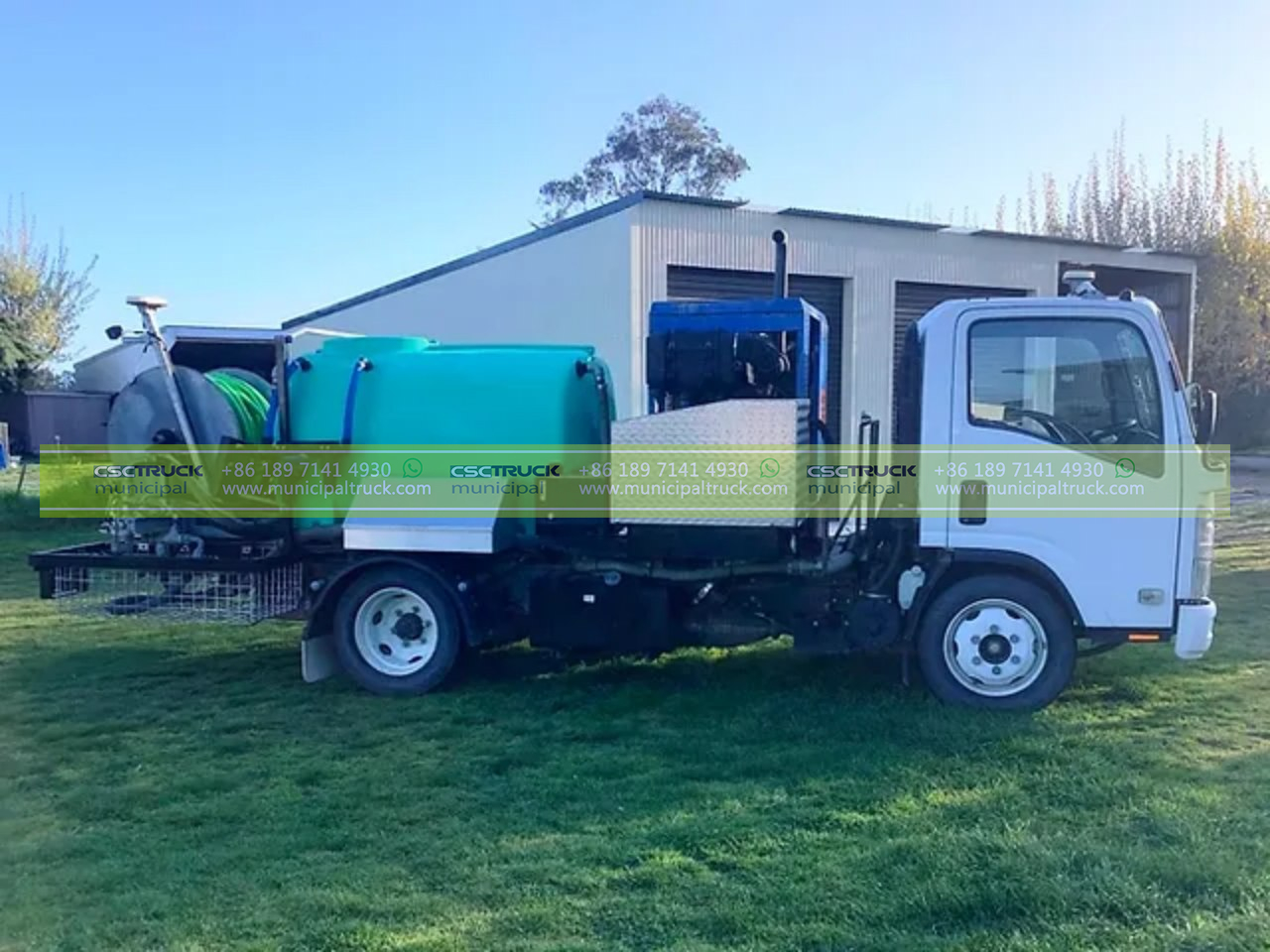
Adapting Maintenance to Industry Needs:
The maintenance requirements for water jetting trucks can vary based on the industry they serve. Different sectors, such as construction, manufacturing, and municipal services, have distinct demands and challenges. Tailoring the maintenance approach to specific industry needs can further enhance the efficiency and effectiveness of water jetting truck operations.
Construction Industry:
In construction, water jetting trucks are often used for tasks such as surface preparation before painting or coating, concrete removal, and cleaning construction equipment. Given the rugged nature of construction sites, these trucks can be exposed to harsh conditions, including abrasive particles and debris. In this context, more frequent inspections of nozzles, hoses, and pumps might be necessary to prevent accelerated wear due to abrasive materials.
Oil and Gas Industry:
The oil and gas sector employs water jetting trucks for cleaning pipelines, tanks, and equipment. Due to the presence of potentially hazardous substances, maintaining the integrity of the high-pressure system is crucial. Regular pressure tests, along with specialized safety measures, should be incorporated into the maintenance routine to ensure the equipment can withstand the demands of this industry.
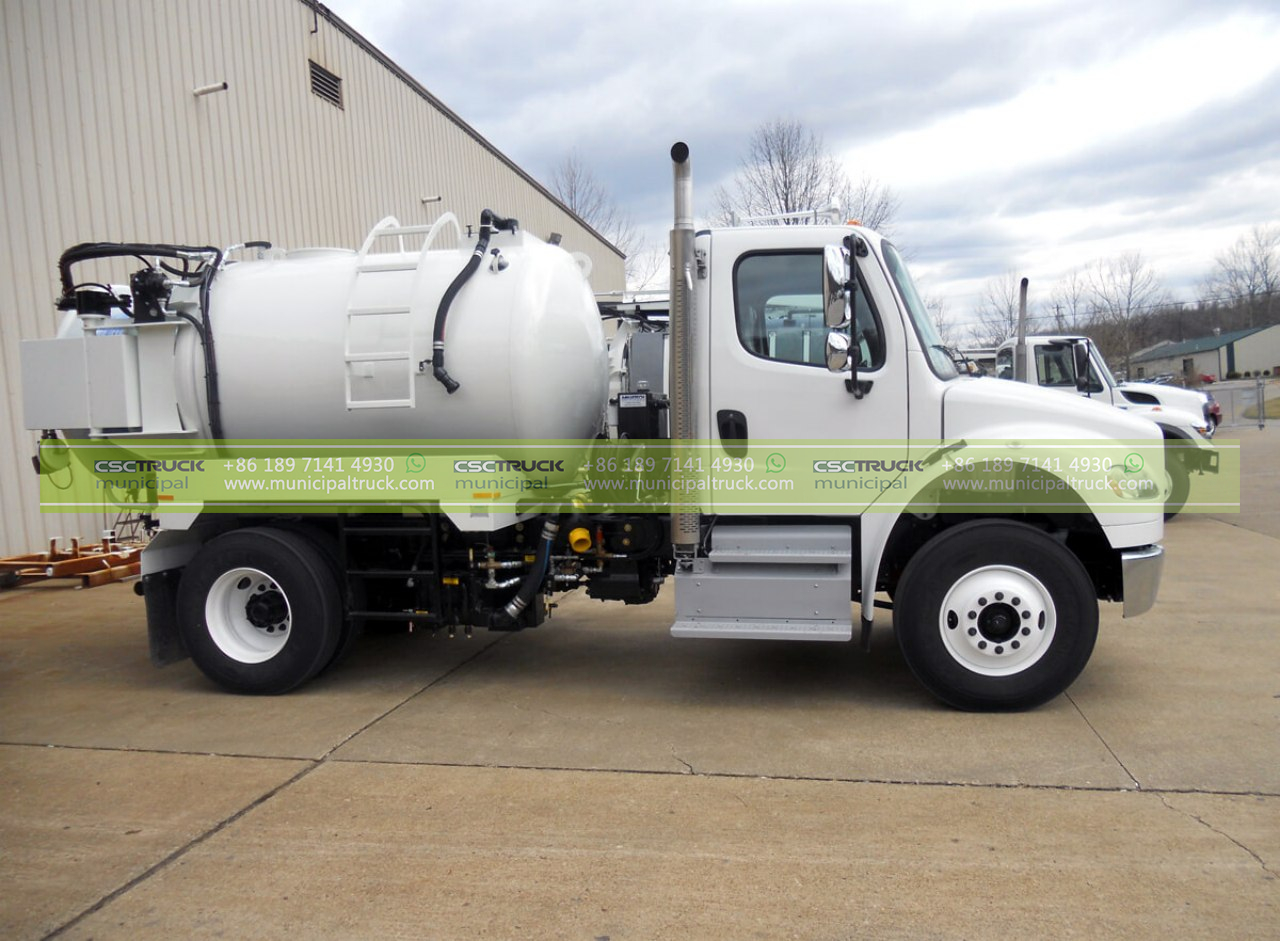
Municipal Cleaning:
Municipalities rely on water jetting trucks to clean sewer lines, remove graffiti, and tackle other urban maintenance tasks. Given the frequency of use in these applications, a well-organized maintenance schedule is essential. Moreover, the trucks should be equipped with mechanisms to capture and manage the wastewater generated during cleaning operations, adhering to environmental regulations.
Environmental Considerations:
As industries worldwide place increasing emphasis on sustainability and environmental responsibility, water jetting trucks are under scrutiny for their water usage and potential runoff. Regular maintenance can contribute to reducing environmental impact. For instance, properly functioning nozzles and hoses ensure efficient water utilization, minimizing waste. Additionally, addressing leaks promptly prevents contaminants from entering waterways.
Embracing Technological Advancements:
The realm of maintenance is not immune to technological advancements. Companies can leverage data analytics, Internet of Things (IoT) sensors, and predictive maintenance software to monitor the health of water jetting trucks remotely. These tools can provide real-time insights into the performance of critical components and alert operators or maintenance teams when intervention is needed. Integrating technology into maintenance practices can streamline operations and minimize downtime.
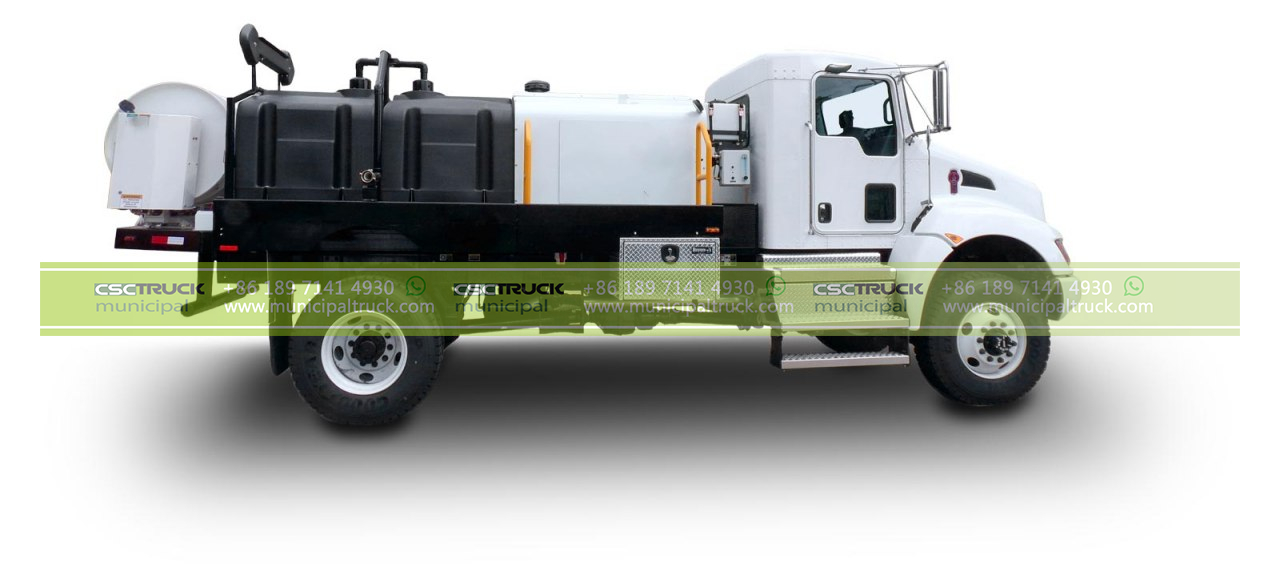
Conclusion:
Water jetting trucks have revolutionized industrial cleaning, offering a powerful and versatile solution for various sectors. The efficiency and effectiveness of these trucks rely heavily on a robust maintenance strategy. From regular inspections to specialized maintenance procedures tailored to industry demands, every step contributes to a reliable fleet that delivers consistent results. As industries evolve and environmental considerations take center stage, adapting maintenance practices to meet these changes ensures that water jetting trucks remain an indispensable tool for maintaining cleanliness, safety, and operational excellence across various sectors. By recognizing maintenance as an investment in the longevity and performance of these machines, companies pave the way for success in an increasingly competitive and environmentally conscious landscape.
Contact us for this municipal truck or similar trucks: info@municipaltruck.com Call us or What's APP us: +86 189 4292 3930
